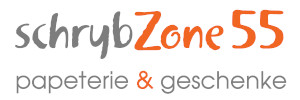Beschreibung
The technological challenges for gravitational-wave detection from space are tremendous and unprecedented standards are imposed for optical instrument performance, platform integrity, and science data processing algorithms. Recently, the Laser Interferometer Space Antenna (LISA) Pathfinder mission successfully demonstrated key technologies for spaceborne laser interferometer constellations. Since then, theoretical and experimental system and instrument studies are continuously proceeding for LISA and other interferometer designs. The LISA mission is the concept of a three-satellite constellation realizing a spaceborne long-arm interferometer, expected to launch in the later 2030s. LISA aims to observe gravitational waves emitted by various stellar, galactic, and possibly cosmic sources. For this purpose, distance changes between free-falling test masses shall be measured with picometer precision. Due to the precision requirement, LISA belongs to the most ambitious missions ever flown. The dissertation deals with the modeling, estimation, and calibration of tilt-to-length (TTL) coupling noise required to achieve the foreseen detection sensitivity of gravitational-wave observatories in space.








